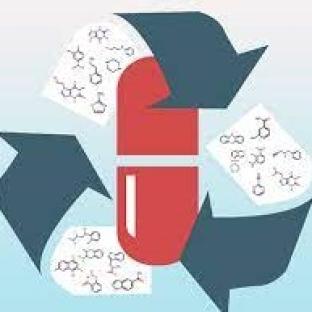The glucagon-like peptide-1 receptor agonist (GLP-1) liraglutide may protect the brains of people with mild Alzheimer’s disease (AD) and reduce cognitive decline, according to findings presented at the Alzheimer’s Association International Conference (AAIC) 2024 in Philadelphia and online. GLP-1 receptor agonists, which mimic the natural hormone glucagon-like peptide released by the stomach after eating, are known to aid in diabetes management, weight loss and reducing risks of heart diseases, strokes and kidney diseases. Researchers are exploring multiple ways to repurpose drugs either alone or in combination with another therapeutic, offering a promising avenue for AD research.
This innovative and attractive strategy may help identify new targets for drugs that are already approved for other conditions, leveraging known safety profiles and mechanisms of action. Previous research in AD animal models suggested that liraglutide may have neuroprotective effects by reducing early forms of amyloid, normalising synaptic plasticity and cerebral glucose uptake, and improving memory and learning. In the study presented at AAIC 2024, investigators from Imperial College London conducted a randomised, double-blind and placebo-controlled Phase IIb trial to evaluate the effects of liraglutide in people with mild AD. The ELAD study was funded by the Alzheimer’s Association’s Part the Cloud program.
204 participants with mild AD were enrolled in the UK and received either a daily subcutaneous injection of 1.8 mg liraglutide or placebo for a year. The trial excluded people with diabetes to try to control for any effects of that disease, which is itself a risk factor for AD. Before the study began, all participants had magnetic resonance imaging (MRI) to evaluate brain structure and volumes, glucose metabolism with PET scans and other tests looking at memory, comprehension, language and spatial orientation. These were repeated at the end of the study with regular safety visits. The trial failed to meet its primary endpoint, which was the change in the metabolic rate of glucose in certain parts of the brain. However, secondary endpoints demonstrated statistically significant benefits.
Participants who received liraglutide had nearly 50% less volume loss in several areas of the brain that are responsible for critical functions like memory, language and decision-making, compared to those who received placebo. This reduction in brain loss went along with 18% slower decline in cognitive function in a year. Similar to other GLP-1s, the most common side effects reported were gastrointestinal issues such as nausea. Liraglutide is being developed by Novo Nordisk, a Danish multinational pharmaceutical company developing innovative biological medicines. The company is testing GLP-1 analogues in late-stage clinical trials, such as the EVOKE Plus trial evaluating semaglutide in people with early AD.
https://aaic.alz.org/releases-2024/glp-drug-liraglutide-may-protect-against-dementia.asp
